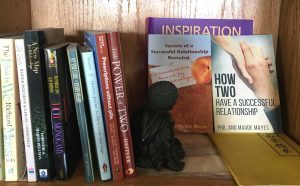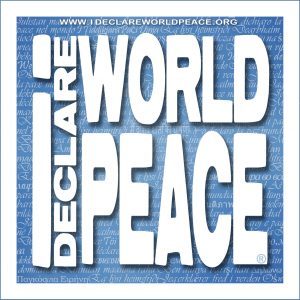Maude Mayes's Blog: Secrets of a Successful Relationship Revealed, page 93
December 16, 2016
Phil and Maude’s Friday Feature: Dr. Susan Heitler
 Today we’re pleased to feature Dr. Susan Heitler. When researching links for our Successful Relationships Reading Corner, we kept picking articles by Dr. Heitler. The first we found was an article she wrote for Psychology Today called “Beware Of Mistaken Marriage Advice That ‘All Couples Fight’”. In that article she disagrees with marriage research guru John Gottman, and goes on to say:
Today we’re pleased to feature Dr. Susan Heitler. When researching links for our Successful Relationships Reading Corner, we kept picking articles by Dr. Heitler. The first we found was an article she wrote for Psychology Today called “Beware Of Mistaken Marriage Advice That ‘All Couples Fight’”. In that article she disagrees with marriage research guru John Gottman, and goes on to say:
Marriage fights, that is, arguing at any level of intensity, reflect a breakdown in partnership. It means you have switched to a stance of being opponents, arguing for yourself and against your partner. Fighting is adversarial dialogue; the goal is to win, not to build mutual understanding.
A zero-fighting policy makes couples far happier. That doesn’t imply that differences should be swept under the rug. To the contrary, no-fighting policies need to be combined with solid collaborative win-win dialogue skills.
The notion of “fair fighting” suggests a model that is an upgrade over going to war with truly abusive fighting. Fair fighting however still is not an ideal worthy of aspiring to. It’s just a lesser evil. Fighting of any type involves standing against your partner. Wrong idea.
Marriage works best when you both aim to stand together, united against the problems, not pitted against each other.
Dr. Heitler’s views were so consonant with ours that we researched her work and made contact with her. She has been saving marriages in danger of divorce as a clinical psychologist for over 30 years. She’s a graduate of Harvard University, holds a master’s degree in education from Boston University and a doctorate in clinical psychology from New York University. In 1993, Dr. Heitler wrote her first book for clinical psychologists, From Conflict to Resolution. 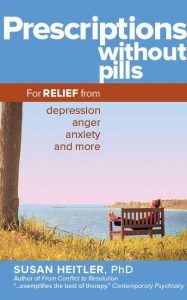 In 1997, realizing that lay-people needed their own book, she wrote the world-renowned marriage help book, The Power of Two: Secrets to a Strong & Loving Marriage. Her newest book, Prescriptions Without Pills: For Relief from Depression, Anger, Anxiety, and More offers techniques for resolving the problems that have been provoking uncomfortable emotions.
In 1997, realizing that lay-people needed their own book, she wrote the world-renowned marriage help book, The Power of Two: Secrets to a Strong & Loving Marriage. Her newest book, Prescriptions Without Pills: For Relief from Depression, Anger, Anxiety, and More offers techniques for resolving the problems that have been provoking uncomfortable emotions.
She has an online program, Power of Two, which offers an excellent substitute or supplement to marriage counseling at a very reasonable monthly rate. You can also check out her Facebook page to read her latest posts from psychologytoday.com. Her blogposts there have received over 8 million views!
We are very happy to share Dr. Heitler with you. We have read her books and can thoroughly recommend them, and are sure you will find much of value in all of her work.
December 14, 2016
Successful Relationships Reading Corner
In this week’s blog we continued our discussion of core values; here are some different articles on this topic. We think you’ll enjoy them.
What Core Values Mean to Love “Core values form the foundation on which we live and conduct ourselves. When we’re in alignment with our core values, we know the direction our life is heading and what’s important to us. We experience more peace, self confidence and well-being. Without core values, we find ourselves drifting from relationship to relationship or staying in unhealthy relationships and never really feeling fulfilled.”
Personal core values help focus and align your life choices “Choosing your personal core values is one of the critical focusing decisions that can make an amazing difference in how you live your life. As a person, they reflect the fundamental choices of who we want to be. In our network of connected decisions, they provide the goals and criteria that should influence all our other personal decisions. We derive a sense of fulfillment when living our personal values because our motivations and actions are aligned with the aspirations of who we want to be.”
What Are Your Values? Desires? Dealbreakers? “One of the things that people are most confused about and that I get asked a lot of questions about, is the issue of ‘common interests’ and letting superficial things inadvertently get mixed in with your ‘core’ values. Over the past few days I’ve been talking about value and values in relationships, and in this post, I put a clear division between the nice to have stuff that doesn’t actually cause your relationship to endure unless you have the ‘core’ values covered off.”
December 11, 2016
What Are Core Values, and What Are Yours? Part II
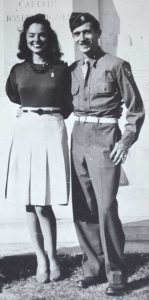 MAUDE: We started a two-part blog on core values last week. In this second installment, Phil and I want to share with you our personal meanings and values – what they are for each of us. I have thought about this and looked to see if there are answers to this critical topic that I haven’t shared with you in the past.
MAUDE: We started a two-part blog on core values last week. In this second installment, Phil and I want to share with you our personal meanings and values – what they are for each of us. I have thought about this and looked to see if there are answers to this critical topic that I haven’t shared with you in the past.
We have covered many aspects of this both in our blogs and in our latest book, “How Two: Have a Successful Relationship”. Lately I find myself looking for the underlying or bedrock understandings that are the root of whatever I am discussing.
That is the approach that I have taken in looking afresh at my own meanings and values as they concern our relationship, and my relationships in general. At the center of what supports our togetherness is the experience of union.
This is a union based on the deep understanding that we are truly on the same side; one which is formed by mutual support, caring and love, and is the place from which all our actions originate.
This place is where we understand our relatedness and experience the strength and peace which comes from a mutual merged self. Staying in touch with this truth creates two very strong individuals who feel free and confident to act in the world as separate people, and who always experience the strength of that separateness through the union that supports it.
When people become estranged, it is often because they have switched into acting and believing that the separate part of their nature is the only part that exists in their relationship. They have misplaced or forgotten perhaps the very thing that makes them a couple, the union.
So when I think of my core values, I put the knowledge of the depth of our union first. We believe in supporting each other. We believe in each other. We want the best for each other at all times, and know that we both feel this way. We are committed to sharing our selves with the other and being fully present so we can. All actions and behaviors are seen in this light, as this is our truth. So if any of our actions seem different, we will always be able to get to the core and find mutuality, for we know that this is our deepest commitment: we are fully there for each other.
At the center of what supports togetherness is the experience of union #love #relationships #quote
Click To Tweet
PHIL: It’s hard to write about core values in crisp, black-and-white words because of the order in which we came to realize this. It was as a result of getting on so well and then looking at the reasons that we saw that holding the same underlying values was a part of this. But knowing what those values are for me is not obvious, because they don’t exist as words, but as comforts or discomforts about the world, and they only become visible through my actions and reactions to events in the world, whether they be sunsets, elections, or arguments with a neighbor.
Fairness is very important. I remember some patently unfair treatment from a teacher at school; more accurately, I can remember the strong feeling of indignation, while having no recall of the details of what happened. Empathy is another. If we don’t have it, we are all sociopaths.
Yet such high ideals are in a way, at odds with the selfish aspect of self. I regularly walk past the homeless on State St. without acting from fairness and empathy.
As for measuring your compatibility with someone else, words don’t count, only behavior does, and it takes time and adversity before you can see another person’s values in action.
I can easily imagine that other people have different core values. In “The Righteous Mind“, Jonathan Haidt identifies five moral foundations. Fairness and caring are mainly held by liberals, while loyalty, authority and sanctity are conservative values.
Then there are ways that people want to live their life that are very important to them. Whether to have children, whether to live rurally or in a city, their sexual orientation, their bedroom kinks, their attitude towards money; any of these and more can be deal-breakers for a relationship.
All of this requires that you know yourself, and can distinguish what you want from the expectations of people you know and society at large. I think artists (in the broad sense of the term) are less constrained by these expectations, but for me, it’s a life-long process to find my voice and yet honor my place in society.
We would love to hear your own personal stories of core values and how they play a role in your relationships. Please share your comments below!
December 7, 2016
Successful Relationships Reading Corner
In this week’s blog we wrote about what core values are. These posts have some excellent perspectives on this topic. We think you’ll enjoy them.
Understanding your core values in relationships (no they’re not your common interests) “One of the things that people are most confused about and that I get asked a lot of questions about, is the issue of ‘common interests’ and letting superficial things inadvertently get mixed in with your ‘core’ values. Over the past few days I’ve been talking about value and values in relationships, and in this post, I put a clear division between the nice to have stuff that doesn’t actually cause your relationship to endure unless you have the ‘core’ values covered off.”
Core Values Assessment This page has a quiz for both of you. “Values are the cornerstone of your relationships and determine what you believe about money, free time, work, friends, intimacy, clothes, politics, family, and spirituality. Values drive your actions and add meaning to your life. One of your essential roles in relationships is to identify your values: first as an individual and then together if in an intimate relationship.”
The Love Doctor on Archetypes, Core Values and Relationships “Do you ever wonder why certain patterns seem to happen over and over with the people you date or with your current partner? You know, like constantly being attracted to the wrong person or wanting your partner to be someone they aren’t or can’t be? These types of frustrating relationship patterns can usually be traced back to the notion that you and your partner are opposite in a key life value that is important to you.”
December 4, 2016
What Are Core Values, and What Are Yours? Part I
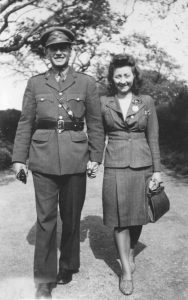 Core values – what exactly are they? They differ from person to person, and if your partner’s values don’t match yours, they will emerge as irreconcilable differences in your most serious arguments. That is why it is so important to make sure those values match when entering a relationship. If you are having issues in an existing relationship, this is also the area to focus on and to look for mutual agreement, because when you match there, you can always find resolution in other areas.
Core values – what exactly are they? They differ from person to person, and if your partner’s values don’t match yours, they will emerge as irreconcilable differences in your most serious arguments. That is why it is so important to make sure those values match when entering a relationship. If you are having issues in an existing relationship, this is also the area to focus on and to look for mutual agreement, because when you match there, you can always find resolution in other areas.
Before you can evaluate whether your core values are in consonance with your partners, you have to know what they are for you. In order to have a successful relationship, it is important that you spend time getting to know yourself and what the true core issues are for you in life. Having done that, you will want to look at both the actions and words of your partner to see if there is a true match possible.
What core values are, why they matter in your relationship – what are yours? #relationships #quote
Click To Tweet
A number of our readers have asked us for specific examples so they can better understand what we are referring to. Some of the most important ones for us, our deal breakers if you will, are:
Honesty
Fidelity
Relating to others as part of one human family
Fiscal responsibility
Commitment
A desire for peaceful interactions
Practicing presence
Acceptance and celebration of differences
Humor
Love and support of each other, friends and family
Generosity
Politics as a reflection of world view
For more examples, here are quotes from two of the couples we interviewed in our book “How Two: Have a Successful Relationship”
Q: Do you have basic core values you share?
Diane: Two things come to mind: a sense of humor about life in general and a lot of mutual things that we do together that we enjoy. There’s a lot of mutuality in our ideas about the world, enjoyment of how we choose to spend leisure time and that we have similar interests – that’s a big factor – and an appreciation and aesthetic sense that’s very similar. Also, in terms of our day to day living, we live very much in the same way: we’re both not sloppy people, we both like neatness, we like to have order, we’ve worked out routines with each other to give each other space.
Mark: Politically, we’re both aligned.
Diane: Political alliance is huge for me.
Mark: We both have very similar aesthetics we talk about.
Diane: One core value is family. I think we both share a sense that our families are very important to us, so that to me is a big core value. We also have similar goals in terms of wanting to have a certain level of comfort in our lives. How the person is with money – that’s a huge issue.
Mark: Also we have made a decision that we’re for each other, and even though she has a lot of male friends, I never doubt her fidelity. She never feels that I have a roving eye, so I think that’s a core value that we’ve really worked on, and I try not to even give the impression that there is any reason to be jealous or to use that as a ploy or something like that.
Diane: That’s a trust issue too; we trust each other. I don’t think Mark would do anything to intentionally hurt me – and I think Mark knows no matter what I may have said that my intent is not to hurt him.
We also asked Jacqueline and Michael:
Jacqueline: Yeah, total transparency and honesty, and speaking your truth, and sharing with the other person how you want it – not making assumptions that the other person can read your mind. I want to be informed of what he likes, the same way I would like to tell him what I like. It’s not fair for him to be guessing and for me to be begrudging something for lack of communication. So communication is a crucial core value.
Michael: It’s key. As Jacqueline said, authentic communication, vulnerable communication, a willingness to hear what might be uncomfortable and might feel threatening to my ego, but I’d much rather hear it now than pretend I didn’t hear it or pretend it’s not there. And so that is definitely absolute. That and the insistence on being fully present for each other. That, I would say, is also core, a core part of our relationship.
We’d love it if you would share with us what values are important to you. Please comment below or email us at philandmaude@philandmaude.com.
Next week, we’ll continue with our personal stories.
November 30, 2016
Successful Relationships Reading Corner
In this week’s blog we wrote that we’re all one family – let’s act like one. These posts have inspiration for us all.
A New Map for Relationships “Working on global issues proved critical to bringing magic back into our marriage, and truly loving personal relationships provide the model for a peaceful, sustainable planet…. You will … see how the same tools that transformed our marriage—holistic thinking and compassion—can avoid future such catastrophes. The essence of this book is: “You have to believe in the seemingly impossible gifts of unconditional love and a more peaceful planet, and then dedicate yourself to discovering how to achieve them.””
Family and world peace “Have you ever wondered why some patterns keep reoccuring in your relationships?
Maybe you have a hard time trusting others or letting people come close.
Maybe you find it difficult to receive help from others.
Maybe you can’t understand why people could possibly want to be with you and love you?
If you follow the threads of these patterns, you will often end up closer than you think: your family.”
The World Peace Library “The World Peace Library has over 375 audio recordings with inspirational stories, skills training and powerful solutions by the world’s top peacebuilders, social change leaders, scientists, Indigenous elders and spiritual mentors.”
November 27, 2016
We’re All One Family – Let’s Act Like One
 Family. Our parents, our children, our siblings. Then there are cousins, aunts, nephews. Perhaps you shared turkey with them last Thursday.
Family. Our parents, our children, our siblings. Then there are cousins, aunts, nephews. Perhaps you shared turkey with them last Thursday.
Or maybe you are estranged from your relatives, and have made your own family; people you can share your fears and dreams with, people you can call on to help out, people with whom you celebrate milestones.
But where do you draw the line? Who’s in the circle and who’s out? More interestingly, why are people outside? Is it because you don’t like them, or trust them, or know them? And yet they are people like you in so many ways: they eat, they sleep, they catch colds.
We divide by looking at differences. We unite when we see similarities.
The truth is that we are all related. We belong to one human family and we are progressing and evolving together.
It behooves us to realize this fact, and to really start to consciously work together for our united growth and increased quality of life.
To do this we need to understand that we will have to use true creativity, and most of all co-creativity, to achieve goals that will produce forward movement for our whole family, for all of us on this planet.
We divide by looking at differences. We unite when we see similarities. #quote #relationships
Click To Tweet
There can really be no other goal, as the world grows smaller and smaller and we are all more and more interdependent on the behavior of each other.
There will surely be many bumps along the way. Some of us will react with fear, with the desire to isolate with just one part of the whole.
We have evolved from small groups and tribes to nations that have needed to band together against the ‘others’, often for survival. It will take a long time to move out of the shadow of this part of our evolution into the shining day of a world where we all live as one family, supporting each other and loving one another.
Yes, this may take a long time with many upheavals along the way, but this is where we are inevitably headed. Therefore let us learn the skills of co-creating mutual solutions that incorporate the best of each one for the betterment of the individual and the whole.
We do not have to give up something to get something that we need. Instead we must find solutions and methods that work for the whole. Those solutions are there. We need to use ways to communicate with each other that bring out our commonality and paths that are inclusive of each of our needs.
And we must develop the desire to be there for each other. “Teach your children well. Their father’s hell did slowly go by.” Crosby, Stills, Nash and Young.
November 23, 2016
Successful Relationships Reading Corner
In this week’s blog we wrote about how to talk turkey together this thanksgiving. These posts all have insights and advice for Thanksgiving.
How To Survive Thanksgiving With Your Family Post-Election “Thanksgiving is all about coming together as a family to celebrate … except when it’s about coming together to argue about Donald Trump and Hillary Clinton. Some people are saying this holiday season is even more stressful than usual, though, as they’re dreading Thanksgiving Day political arguments with relatives.”
How to Argue Fairly and Without Rancor (Hello, Thanksgiving!) “It’s clear that American Thanksgiving gatherings are sure to be interesting affairs this year, as families split between Trump and Clinton supporters try to sit down to dinner without maiming one another — if they show up at all. So this may be a good time to explore what psychologists and philosophers say are the most effective ways to argue.”
8 Ways to Talk about Politics Without Ruining Thanksgiving Dinner “Contrary to the popular sentiment that discussing politics is just inviting trouble, political discussion is actually one of the bedrocks of our democracy. It’s how we work through problems, find common ground, and build compromise. We the People need to be able to talk — not scream at one another.”
November 20, 2016
How to Talk Turkey Together This Thanksgiving
The only way in which a human being can make some approach to knowing the whole of a subject is by hearing what can be said about it by persons of every variety of opinion and studying all modes in which it can be looked at by every character of mind. No wise man ever acquired his wisdom in any mode but this. John Stuart Mill
This year, the very special American holiday of togetherness follows a divisive election. We both feel strongly that it’s important to look at how to communicate constructively with others.
PHIL: It’s Thanksgiving again, and in this very political season, dinner table conversations may become more heated than ever. We’ve written extensively on how to resolve differences between partners without conflict, but how can that possibly be applied in this post-election season?
Politics is far more emotional than rational. We pick policy positions that support our emotional responses, and argue over those policies rather than addressing the underlying feelings. The core emotion is fear, which is a tricky one to deal with because it’s scary to look at; it is an unseen force over our shoulder, pushing and pulling us in various directions, and it takes bravery to look over our shoulder and challenge it. It is easier to see our response to it, which is anger.
So when there is an angry clash over policy positions, speak to the underlying fear, not the position itself. The way to address its manifestation of anger is to avoid responding with anger of your own, as this only escalates the situation. Any anger that arises in you is a cloak for your own fears, so go inside, find them and speak them.
This follows an important guideline that we’ve blogged about for resolving differences: speak from the “I”. When you say “You…”, the statement is an attack or a criticism, but by saying “I”, it becomes a sharing of information, an act of intimacy and an opportunity for empathy.
In our writing about problem solving, we have said that differences can only be fully resolved when the partners share core values, and in political confrontations, it seems that this is definitely not the case! The answer here is to go deeper by looking at our most basic needs of food, shelter and security; to look at what we have in common rather than what our differences are; and to emphasize that our identity as humans is more basic than our identification with political groups.
We’ve deliberately written this to be politically neutral. Share it with your friends and family before you sit down to that turkey.

We may not agree but by listening & hearing each other we can find a way to act out of love #quote
Click To Tweet
MAUDE: This week many of us will be heading to Thanksgiving gatherings with family and friends. There has been a lot of discord within many relationships in these tumultuous times. We feel therefore that it is a good moment to look again at processes of finding mutual solutions, successful means of communication and in general remembering to be thankful for all we have.
Being aware and being active is a very important part of being a contributing citizen of society, and it also behooves us, as citizens and individuals, to remember all we have to be thankful for. Let’s all remember to acknowledge and appreciate all we have; to acknowledge our relationships with each other and to be kind to each other and ourselves.
In these times of great discord, when many people seem to be focusing more on what divides us than on what our commonalities are, we feel it is an ideal moment to center in on how we can find unity within our relationships and work toward communications that foster mutual solutions.
The first step in being able to find mutuality is to remember to treat everyone as an individual. In doing that, we find our mutual humanity, and it automatically sets us on a different course of relating than when we are looking at each other as parties, or positions. Remember, we all have basic human needs and it will further us to act from the acknowledgment of our commonality in trying to find paths to communication and agreement.
It is also important to exercise good communication skills. Remember, if the goal is to reach paths forward that work for all of us and for each of us, we have to use communication skills to begin to understand each other. As in our partnership relationships, we have to learn to listen and actually hear what the other person is saying. We need to hear with an open heart. You cannot be protecting a position or working out what your response will be, and still hear the other person.
And then there is the very rewarding and often very challenging process of seeking and finding mutual solutions. This can only occur when we truly treat others as individuals with whom we wish to find a path leading to resolutions, ones that satisfy and support each individual’s needs.
This may appear impossible at times, but if we really listen with an open heart and mind, we will find these co-creative answers. We may not agree with each other, but through recognizing each others’ needs, listening to each other, really hearing what is truly being said by each other, we will find a way to act out of love for each other. This is our hope and our strength!

We’d love for you to share your thoughts and experiences in the comments below.
November 18, 2016
Phil and Maude’s Friday Feature: Lawrence Gelber
Lawrence Gelber is one of those people who puts his thoughts for peace into action, and we find him a perfect candidate for our Friday Feature column. He is a New York based attorney who has acted for peace on a global scale. He founded a movement called “I Declare World Peace“. It is a peace art installation project that hopes to spread peace within the consciousness of every person on the planet.
In describing IDWP, Lawrence says:
The I Declare World Peace project is the world’s largest ever art project / sort-of-science experiment. There is nothing to register for or to join. Participation is free and at will. While the I Declare World Peace project morally supports and encourages the efforts and goals of every other well-intentioned peace promoting endeavor, our project is based on principles of the “do less and accomplish more” variety. So, the I Declare World Peace project requires almost nothing of those who choose to participate in it – we ask only that you periodically think the affirmation “I Declare World Peace” and from time to time post it and otherwise promote the affirmation on social media and elsewhere.
We agree with John F. Kennedy and other enlightened thinkers that world peace is possible. In fact, we believe that world peace can be achieved in our lifetime. So to help nurture pro-peace thinking and to raise global peace consciousness, as well as to lubricate the process of achieving peace, please post the phrase “I Declare World Peace” on all of your social media sites. We also encourage the use of the official hashtag – #IDWP – when posting about this project, and also to make an I Declare World Peace video. Peace, after all, is up to us. Thank you.”
Lawrence has worked tirelessly for many years on this project and it has spread throughout the globe. It is a very simple yet highly empowering action which any individual can undertake. Below are the videos that we made for this project. Now, more than ever, we must all feel we can act for peace as individuals, and that we all have the power to do so.
Joint them on Twitter, Facebook and YouTube.
Secrets of a Successful Relationship Revealed
We use this blog to continue the exploration of the magic that can be found in a relationship, and the wider implications of peace for the world. ...more
- Maude Mayes's profile
- 8 followers


